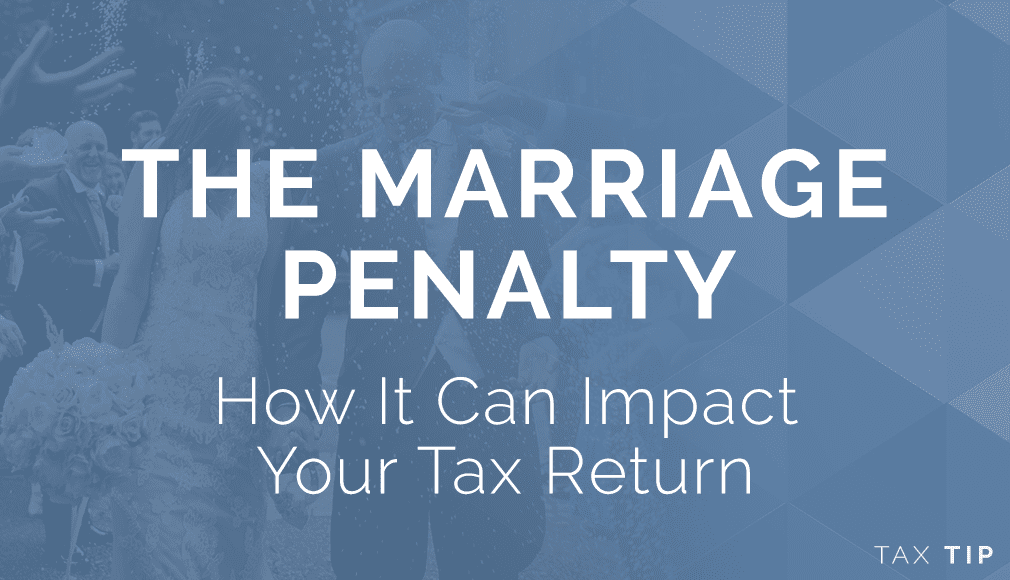
A marriage is worth celebrating, but bringing up the marriage penalty may bring down the celebration. The marriage penalty occurs in the tax code when you pay more tax as a married couple than you would as two single filers making the same amount of money. This occurs throughout the federal tax code and can be costly if you overlook it by not planning ahead of time.
“It’s important to realize how much a marriage can impact your income taxes,” advises Associate Partner Ren Cicalese III, CPA, MST. “I always recommend my recently married clients prepare an income tax projection so there aren’t any surprises.”
If the tax tables did not differentiate between single and married, you could assume the married income required to move to the next highest tax rate would always be double that of a single filer. This is not the case.
“The marriage ‘penalty’ usually occurs when two individuals with similar amounts of income marry,” explains Ren. “If you and your significant other are getting married and have disparate incomes, you’ll likely reap some tax savings. This is referred as a marriage bonus.”
As an example, when you’re a single filer, income above $91,901 is taxed at 28%. When you file a joint return with your spouse, the 28% rate starts at $153,101. You will notice that the beginning of the 28% tax bracket for married couples ($153,101) is not twice the $91,901 amount applied to each of you when you were single. The outcome is an increase in tax on your combined income over what you would have paid individually.
Another example of the marriage penalty occurs in the acceleration of phase-outs of personal exemptions and itemized deductions for married couples versus single filers. These deductions begin when your adjusted gross income (AGI) is greater than $313,800 if you’re married filing a joint return and $261,500 when you’re single. Think the marriage penalty only impacts upper income? Even the Earned Income Tax Credit (EITC) phase-outs favor single taxpayers over married taxpayers. A single mother of three can qualify for the EITC with income less than $48,340, where a married couple loses the EITC with combined income over $53,930.
In addition, under the Affordable Care Act (ACA) taxpayers can face a 0.9% surtax on wages and other earned income and a 3.8% tax on investment income. The income thresholds for these surtaxes are $200,000 for single filers and $250,000 for married couples filing jointly. As a result, singles who each earn $125,000 to $200,000 can get hit with the extra tax after they marry.
See our Related Post, Withholdings and Wedding Bells: Tax Tips for Engaged Couples →
Not surprisingly, there are some couples who simply decide not to marry to avoid the penalty, but obviously this option isn’t right for all couples. If you are planning to marry in the near future, Mike Engleman, CPA recommends partnering with your CPA so that “We can prepare a tax projection during the year so that you are aware of what your combined tax liability will be when you file your tax return and are not caught by surprise with a larger than expected tax bill.”
Contact us for guidance and application to your individual situation →
The information contained in this newsletter is of a general nature and should not be acted upon in your specific situation without further details and/or professional assistance. For more information or for assistance with any of your tax or business concerns, contact our office at 856.667.4100.
Empowering business owners and individuals in South Jersey and Philadelphia to feel confident through proactive accounting and advisory solutions.